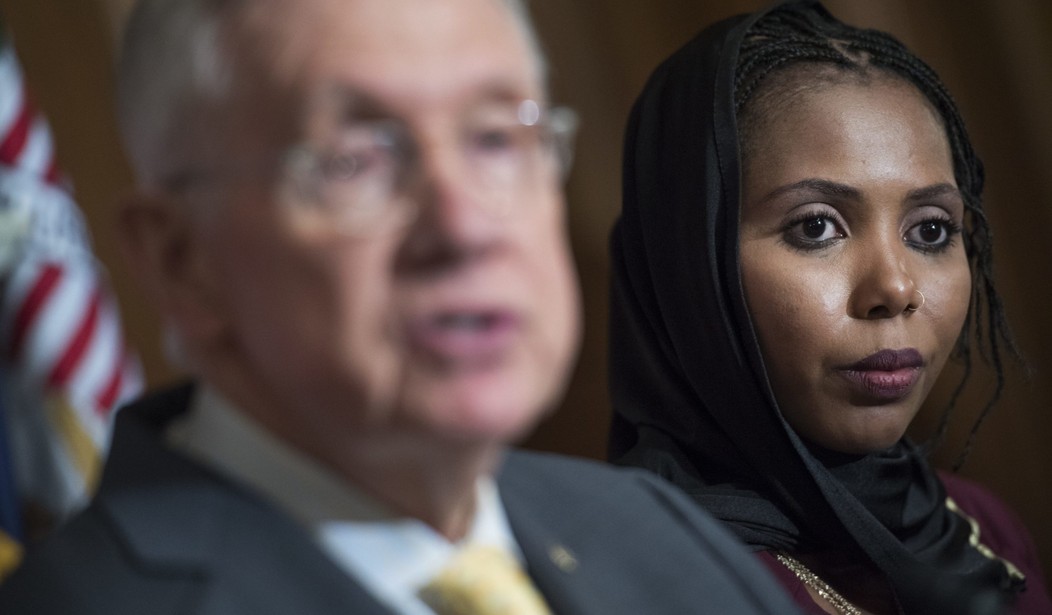WASHINGTON — Senate Democratic Leader Harry Reid (D-Nev.) said the federal government has done “very little” to stop female genital mutilation (FGM) from happening in the United States and urged the federal government not to loan money to countries that allow the practice.
According to a new Government Accountability Office (GAO) report on FGM, Existing Federal Efforts to Increase Awareness Should Be Improved, federal agencies “lack documented plans for future efforts” to curtail FGM.
“The Department of State directly provides information on FGM/C in a fact sheet only to certain types of visa recipients who apply in countries where FGM/C is practiced. State does not provide the fact sheet to nonimmigrant visa recipients as these visas are for temporary stays; however, some of these visas permit stays in the United States for multiple years,” the report read. “In addition, State does not directly provide the fact sheet to visa recipients who are nationals of countries where FGM/C is common, but apply at posts in other countries.”
A United Nations report found that 29 countries located in Africa and the Middle East have the highest rates of FGM.
Reid called the findings of the GAO report “shameful.”
“If there were ever a human rights violation, this is it,” Reid said during a press conference on Capitol Hill last month about the GAO report on FGM happening within the U.S. “It’s a sickening form of oppression against young women and girls. It has terrible physical and psychological consequences.”
According to Reid, in some countries, the rate of cutting is more than 90 percent. In the United States, more than a half a million little girls are at risk or have undergone FGM, which involves cutting off external genitalia and sewing the vulva almost completely closed.
“We need to do more – a lot more,” Reid said. “I’ve worked hard to pass legislation to ban this practice in the United States and now a new thing called vacation cutting.”
Vacation cutting refers to parents who take their child out of the U.S. so FGM can be performed in another country.
Reid said the U.S. should not loan any money to countries that allow FGM.
“I don’t think we should be part of loaning any money to the World Bank or any of these organizations or loaning any money to these countries that allow this,” he said.
The GAO urged the State Department to increase awareness among visa applicants seeking entry into the U.S. about the dangers of FGM.
The GAO recommended that the secretary of State update the Foreign Affairs Manual to require “posts located in countries where FGM/C is commonly practiced to directly provide information about FGM/C to nonimmigrant visa recipients in the same manner as is done for immigrant visa recipients.” The State Department agreed with the recommendation.
Shelby Quast, director of the organization Equality Now, and Jaha Dukureh, an FGM survivor who is the founder of Safe Hands for Girls, joined Reid at the press conference.
Dukureh applauded Reid for his dedication to the issue and expressed uncertainly about the future.
“I don’t know about anyone else but every time that I think about his [Reid’s] retirement I almost get teary-eyed because I am sad that he is leaving. I don’t even know where we are going to go from here,” she said. “There’s no reason why girls should continue to suffer from FGM and there’s no reason why this government shouldn’t do more and reach out to other countries and support efforts that are being led by grassroots organizations.”
Quast said the U.S. government should support more anti-FGM efforts internationally.
“All countries at the UN have agreed that one of the targets in the sustainable development goals is to eliminate female genital mutilation and cutting and the U.S. can play a lead role in doing that, but we need to make sure our global commitments are honored at home – that we’re doing this to protect the girls and women affected or at risk of FGM in every state,” she said.









Join the conversation as a VIP Member